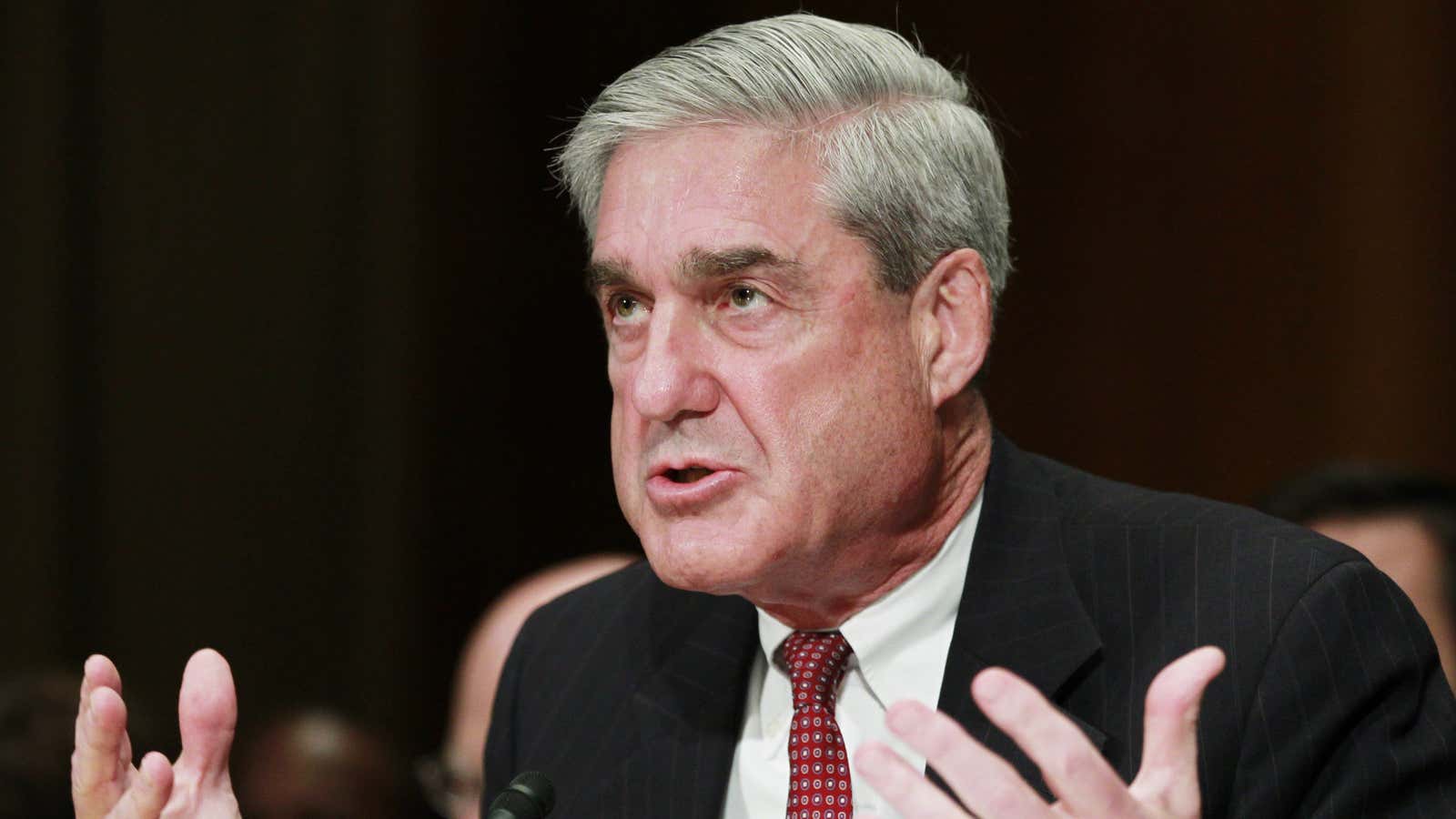Special counsel Robert Mueller’s investigation into the Trump campaign has been extraordinarily successful.
The ex-FBI director has racked up convictions or guilty pleas for several figures at the very top of the campaign, including one-time campaign chair Paul Manafort, Trump’s former personal lawyer Michael Cohen, former national security advisor Mike Flynn, and senior campaign official Rick Gates.
We know that Trump and Cohen discussed getting a Trump Tower Moscow approved until far into the campaign—and that Cohen talked to a Russian official about it. We know that they tried to meet Russian president Vladimir Putin in September 2015. We know, thanks to an investigation spun off from Mueller’s office, that Trump directed Cohen to commit campaign finance crimes by paying off women who say they had affairs with him.
It all points to a stunning level of corruption and moral bankruptcy by people Trump hired and worked with on a daily basis. On top of that, Mueller has indicted 25 Russian nationals and three Russian entities for their attempts to influence the election, describing in minute detail what they were up to.
Findings like these could well have sunk other presidents. Yet the public remains resoundingly unfussed. A CNN poll conducted last week put Mueller’s approval rating at just 43%. Respondents gave those answers over three days in which prosecutors revealed a swath of damning findings, including the attempted Trump-Putin meeting.
A couple of factors explain this tepid response. The first is Trump himself, for whom the bar is exceptionally low. He came to office loaded with baggage, including multiple bankruptcies and decades of allegations of shady dealings. As Trump infamously once claimed, “I could stand in the middle of 5th Avenue and shoot somebody and I wouldn’t lose voters.”
But it’s not just Trump. People investigating the president often receive public ire—Ken Starr’s approval rating sunk to 20% when he was probing Bill Clinton. When it comes to politicians, “people believe what they want to believe; they’re not that interested in the truth,” says Paul Rosenzweig, who worked on Starr’s investigation and recently authored a lecture series on “Investigating American Presidents.”
“Most criminals are convicted often on significant circumstantial evidence, but in the case of politicians, people who like them insist, ‘Show me the money, show me the smoking gun,'” Rosenzweig says.
Those demands may be even more acute in the CSI era, in which prosecutors complain that jurors demand unrealistic levels of forensic evidence of criminality. Trump has capitalized on this by claiming in at least 20 tweets that Mueller doesn’t have “evidence” of crimes committed by him. The circumstantial evidence of wrongdoing by the president is becoming overwhelming, but even Trump’s opponents are now holding out for that smoking gun.
This messaging strategy has set monumentally high standards for Mueller’s investigation; the growing convictions against all his henchmen are offset by the repeated insistence that Mueller has nothing directly on Trump himself. What’s more, by repeatedly screaming “NO COLLUSION” Trump has framed the investigation as being about something that legal experts say isn’t even a crime—rather than, say, obstruction of justice.
That wouldn’t be much of a defense in court, but the chances are that Trump won’t have to defend himself in front of a judge. Justice Department policy is that the constitution prohibits indicting sitting presidents, meaning that Trump’s jury is Congress—lawmakers who base their views in large part on those of the American people. So, while Trump’s angry, repetitive tweeting into the abyss seems crass, the way Trump has framed the probe—so that even his opponents have exceptionally high expectations of Mueller—could be what saves him.
A shorter version of this post was published in the weekend edition of the Quartz Daily Brief. Sign up for it here.
